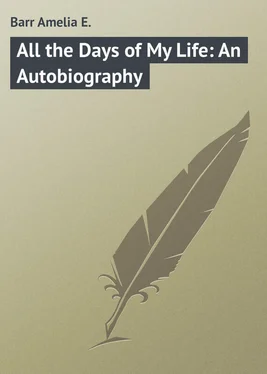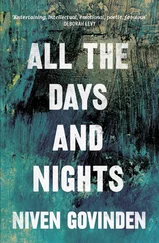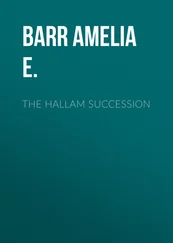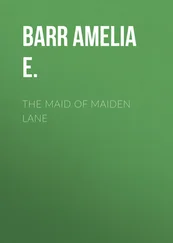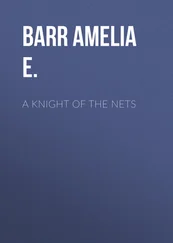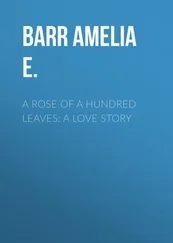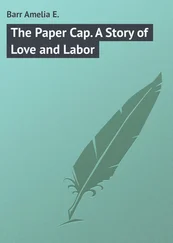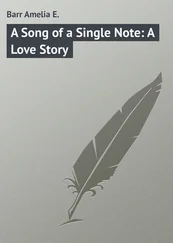Amelia Barr - All the Days of My Life - An Autobiography
Здесь есть возможность читать онлайн «Amelia Barr - All the Days of My Life - An Autobiography» — ознакомительный отрывок электронной книги совершенно бесплатно, а после прочтения отрывка купить полную версию. В некоторых случаях можно слушать аудио, скачать через торрент в формате fb2 и присутствует краткое содержание. Жанр: foreign_prose, foreign_language, на английском языке. Описание произведения, (предисловие) а так же отзывы посетителей доступны на портале библиотеки ЛибКат.
- Название:All the Days of My Life: An Autobiography
- Автор:
- Жанр:
- Год:неизвестен
- ISBN:нет данных
- Рейтинг книги:5 / 5. Голосов: 1
-
Избранное:Добавить в избранное
- Отзывы:
-
Ваша оценка:
- 100
- 1
- 2
- 3
- 4
- 5
All the Days of My Life: An Autobiography: краткое содержание, описание и аннотация
Предлагаем к чтению аннотацию, описание, краткое содержание или предисловие (зависит от того, что написал сам автор книги «All the Days of My Life: An Autobiography»). Если вы не нашли необходимую информацию о книге — напишите в комментариях, мы постараемся отыскать её.
All the Days of My Life: An Autobiography — читать онлайн ознакомительный отрывок
Ниже представлен текст книги, разбитый по страницам. Система сохранения места последней прочитанной страницы, позволяет с удобством читать онлайн бесплатно книгу «All the Days of My Life: An Autobiography», без необходимости каждый раз заново искать на чём Вы остановились. Поставьте закладку, и сможете в любой момент перейти на страницу, на которой закончили чтение.
Интервал:
Закладка:
Millom Castle and lands passed from the Huddleston family to the Earls of Lonsdale, who hold them with the promise that they are not to be sold except to some one bearing the name of Huddleston. Not more than ten years ago, the present Earl admitted and reiterated the old agreement. One part of the castle is a ruin covered with ivy, the rest is inhabited by a tenant of the Earl. My sister stayed with this family a few days about twelve years ago. Soon afterwards Dr. John Henry Huddleston, accompanied by his wife, visited Millom and brought me back some interesting photos of the church and the Huddleston monuments.
The Millom Huddlestons have always been great ecclesiastics. There lies upon my table, as I write, a beautifully preserved Bible of the date A.D. 1626. It has been used by their preachers constantly, and bears many annotations on the margins of its pages. It is the most precious relic of the family, and was given to me by my father on my wedding-day. Their spiritual influence has been remarkable. One tradition asserts that an Abbot Huddleston carried the Host before King Edward the Confessor, and it is an historical fact that Priest Huddleston, a Benedictine monk, found his way up the back stairs of Windsor Castle to King Charles the Second’s bedroom, and gave the dying monarch the last comforting rites of his church.
When they were not priests they were daring seamen and explorers. In the seventeenth century India was governed by its native princes, and was a land of romance, a land of obscure peril and malignant spells. An enchanted veil hung like a mist over its sacred towns on the upper Ganges, and the whole country, with its barbaric splendors and amazing wealth, had a luring charm, remote and unsubstantial as an ancient fable. In that century, there was likely always to be some Captain Huddleston rounding the Cape, in a big, unwieldy Indiaman. That the voyage occupied a year or two was no deterrent. Their real home was the sea, their Millom home only a resting-place. By such men the empire of England was builded. They gave their lives cheerfully to make wide her boundaries, and to strengthen her power.
My father and his brother both chose theology, and they were suitably educated for the profession. John Henry, on receiving orders, sailed for Sierra Leone as one of the first, if not the first missionary of the English Church to the rescued slaves of that colony. My father finally allied himself with the Methodist Church, a decision for which I never heard any reason assigned. But the reason must have been evident to any one who considered the character and movements of William Henry Huddleston. In that day the English Church, whatever she may do now, did not permit her service to be read, in any place not sanctified by a bishop with the proper ceremonies. My father found in half a dozen shepherds on the bare fells a congregation and a church he willingly served. To a few fishers mending their nets on the shingly seashore, he preached as fine a sermon as he would have preached in a cathedral. It was his way to stroll down among the tired sailormen, smoking and resting on the quiet pier in the gloaming, and, standing among them, to tell again the irresistible story of Christ and Him Crucified.
He was indeed a born Evangelist, and if he had been a contemporary of General Booth would certainly have enrolled himself among the earliest recruits of his evangelizing army. In the Methodist Church this tendency was rather encouraged than hindered, and that circumstance alone would be reason most sufficient and convincing to a man, who believed himself in season and out of season in charge of souls. In this decision I am sure there was no financial question; he had money enough then to give his conscience all the elbow-room it wanted.
Soon after this change my father married Mary Singleton —
“A perfect woman, nobly planned,
To trust, to comfort, and command.”
Physically she was small and delicately formed, but she possessed a great spirit, a heart tender and loving as a child’s, and the most joyous temper I ever met. Every fret of life was conquered by her cheerfulness. Song was always in her heart, and very often on her lips. She brooded over her children like a bird over its nest, and was exceedingly proud of her clever husband, serving and obeying him, with that touching patience and fidelity which was the distinguishing quality of English wives of that period.
And it was to this happy couple, living in the little stone house by the old chapel in Ulverston, I came that blessed morning in March, A.D. 1831. Yes, I will positively let the adjective stand. It was a “blessed” morning. Though I have drunk the dregs of every cup of sorrow,
“My days still keep the dew of morn,
And what I have I give;
Being right glad that I was born,
And thankful that I live.”
I came to them with hands full of gifts, and among them the faculty of recollection. To this hour I wear the key of memory, and can open every door in the house of my life, even to its first exquisite beginnings. The thrills of joy and wonder, of pleasure and terror I felt in those earliest years, I can still recapture; only that dim, mysterious memory of some previous existence, where the sandy shores were longer and the hills far higher, has become fainter, and less frequent. I do not need it now. Faith has taken the place of memory, and faith is “the substance of things hoped for, the evidence of things not seen.”
Childhood is fed on dreams – dreams waking, and dreams sleeping. My first sharp, clear, positive recollection is a dream – a sacred, secret dream, which I have never been able to speak of. When it came to me, I had not the words necessary to translate the vision into speech, and, as the years went on, I found myself more and more reluctant to name it. It was a vision dim and great, that could not be fitted into clumsy words, but it was clearer and surer to me, than the ground on which I trod. It is nearly seventy-eight years since I awoke that morning, trembling and thrilling in every sense with the wonder and majesty of what I had seen, but the vision is not dim, nor any part of it forgotten. It is my first recollection. Beyond – is the abyss. That it has eluded speech is no evidence of incompleteness, for God’s communion with man does not require the faculties of our mortal nature. It rather dispenses with them.
When I was between three and four years old I went with my mother to visit a friend, who I think was my godmother. I have forgotten her name, but she gave me a silver cup, and my first doll – a finely gowned wax effigy – that I never cared for. I had no interest at all in dolls. I did not like them; their speechlessness irritated me, and I could not make-believe they were real babies. I have often been aware of the same perverse fretful kind of feeling at the baffling silence of infants. Why do they not talk? They have the use of their eyes and ears; they can feel and taste and touch, why can they not speak? Is there something they must not tell? Will they not learn to talk, until they have forgotten it? For I know
“Our birth is but a sleep and a forgetting
The soul that rises with us, our Life’s Star,
Hath had elsewhere its setting;
And cometh from afar.
Not in entire forgetfulness,
And not in utter darkness,
But trailing clouds of glory do we come
From God, who is our home.”
At this house, overlooking the valley of the Duddon, I needed nothing to play with. Every room in it was full of wonders, so also was the garden, with its dark walls shaded by yews, and pines, and glistening holly, the latter cut into all kinds of fantastic shapes. The house had a large entrance hall, and, rising sheer from it, was the steep, spiral stairway leading to the upper rooms. The stairs were highly polished and slippery, but they were the Alps of my baby ambition. Having surmounted them, there was in the corridor to which they led, queer, dark closets to be passed swiftly and warily, and closed guest rooms – obscure, indistinct, and shrouded in white linen. It gave me a singular pleasure to brave these unknown terrors, and after such adventures I returned to my mother with a proud sense of victory achieved; though I neither understood the feeling, nor asked any questions about it. Now I can accurately determine its why and its wherefore, but I am no happier for the knowledge. The joy, of having conquered a difficulty, and the elation of victory because of that conquest had then a tang and a savor beyond the power of later triumphs to give me. I know too much now. I calculate probabilities and attempt nothing that lacks strong likelihoods of success. Deservedly, then, I miss that exulting sense of accomplishment, which is the reward of those who never calculate, but who, when an attempt is to be made, dare and do, and most likely win.
Читать дальшеИнтервал:
Закладка:
Похожие книги на «All the Days of My Life: An Autobiography»
Представляем Вашему вниманию похожие книги на «All the Days of My Life: An Autobiography» списком для выбора. Мы отобрали схожую по названию и смыслу литературу в надежде предоставить читателям больше вариантов отыскать новые, интересные, ещё непрочитанные произведения.
Обсуждение, отзывы о книге «All the Days of My Life: An Autobiography» и просто собственные мнения читателей. Оставьте ваши комментарии, напишите, что Вы думаете о произведении, его смысле или главных героях. Укажите что конкретно понравилось, а что нет, и почему Вы так считаете.
